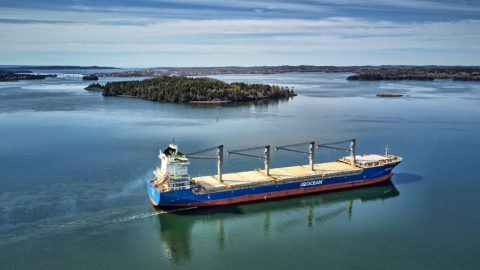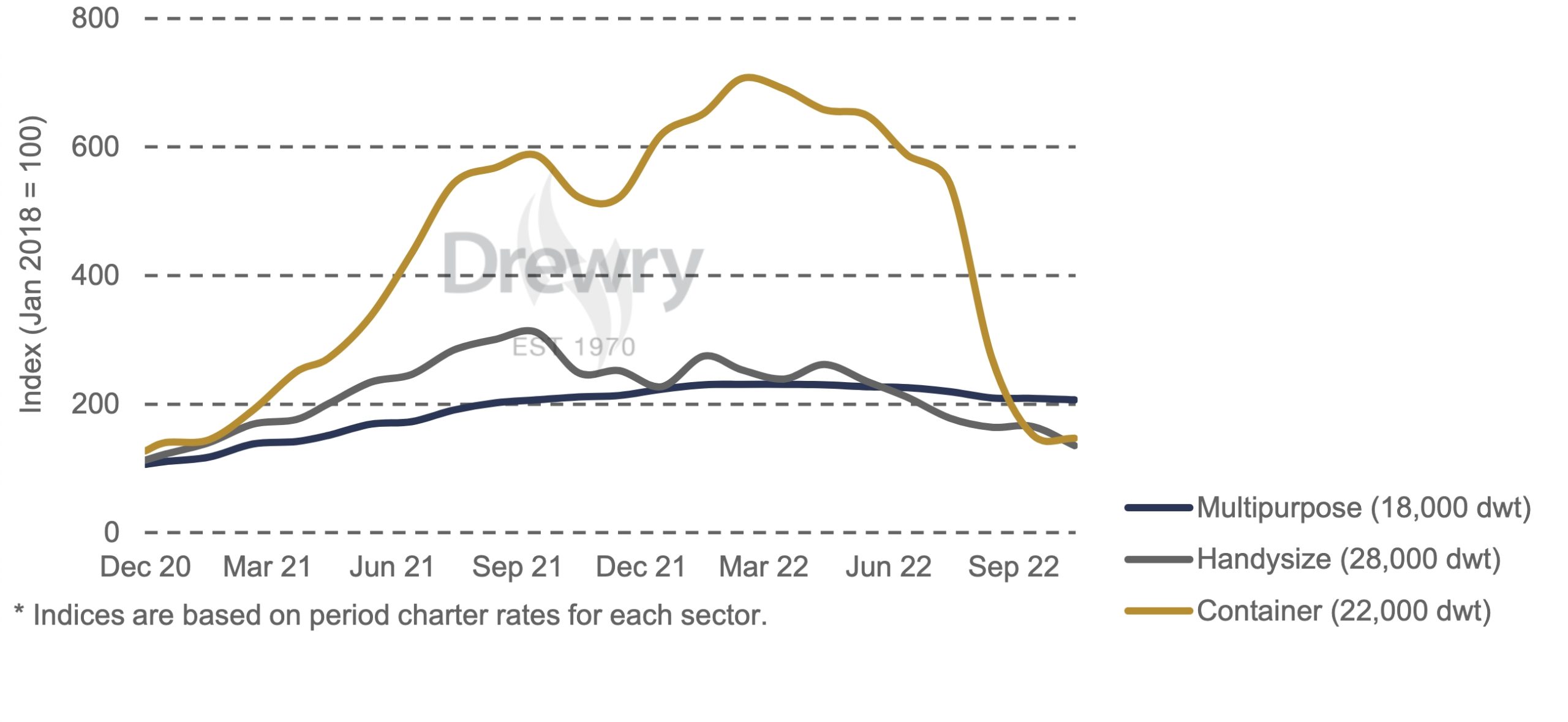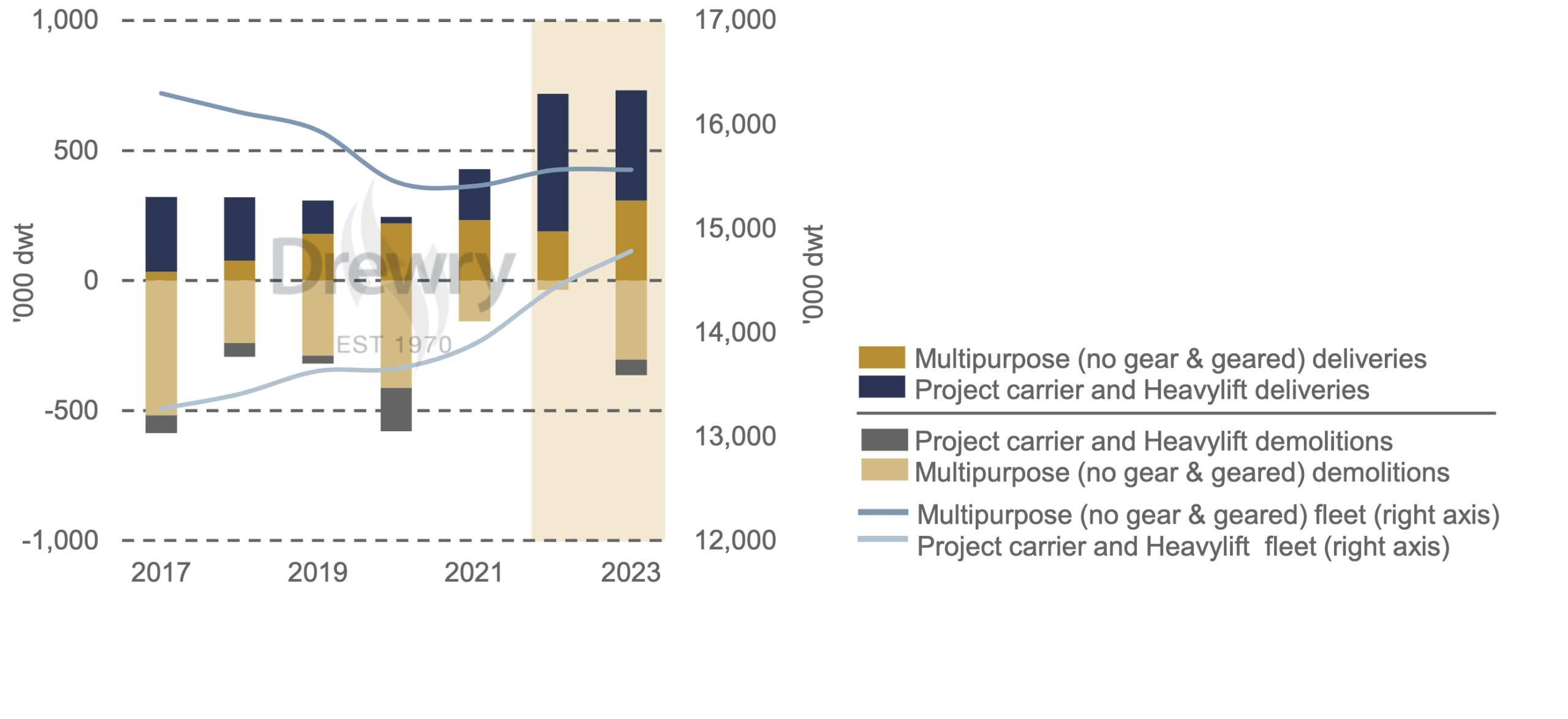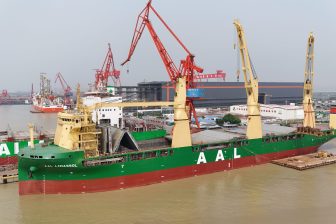
Drewry: multipurpose sector to beat competitors
While multipurpose vessel rates are expected to soften through 2023, the rate of decline is expected to be less than in competing sectors such as containerships and handysize dry bulk carriers, according to the latest forecasts from Drewry’s Multipurpose Shipping Forecaster report.
Last year started with charter rates in all three main dry cargo sectors at unprecedentedly high levels, peaking in the first quarter of 2022. At that point containership rates were 900 percent higher than the second quarter of 2020 (the lowest point in the market over recent years), bulk carrier charter rates were 200 percent higher and MPV rates up almost 150 percent. But from that point there was only one way for them to go.
From the peak at the beginning of the year charter rates in the container shipping sector lost almost 80 percent of their value to end November 2022 and Handy bulk carriers 50 percent. The MPV sector is, however, doing better – at least for the heavylift-capable sector – with long-term charter rates down just 10 percent from their peak.

The reasons behind this are largely to do with the demand for these vessels and the particular mix of cargoes that they can lift. The MPV sector benefitted for much of the year from spill over cargo that was a by-product of widespread supply chain disruption. As those issues have unwound, project cargoes (from both the renewables and oil & gas sectors) have underpinned the loss in demand.
For the first time in some years, the total MPV fleet recorded growth last year and is likely to do so again in 2023, according to Drewry. This is due to the extremely low demolition sales reported over 2022, although this was not surprising given the peak in charter rates. However, even so, given the impending IMO regulations on emissions and carbon reductions, Drewry had expected a few more vessels to head to the beaches.
Drewry expects demolition rates to rise through 2023 back to pre-pandemic levels, on weaker earnings and increasing costs of looming emission regulations. However, most vessel candidates will be smaller craft at less than 10,000 dwt and not heavylift capable.
Conversely, the majority of newbuilding orders are for the larger heavylift capable vessels. The net effect will be fleet growth of 1.2 percent in 2023 but the non-heavylift fleet will effectively stagnate while the heavylift capable vessels are expected to see a rise of 2.5 percent in deadweight terms.

Modest fleet growth and rising competition for breakbulk and project cargo in the face of a weakening global economy will depress MPV charter rates through 2023. But the decline in rates will be less marked than anticipated for the competing sectors of containerships and dry bulk carriers.
You just read one of our premium articles free of charge
Register now to keep reading premium articles.




